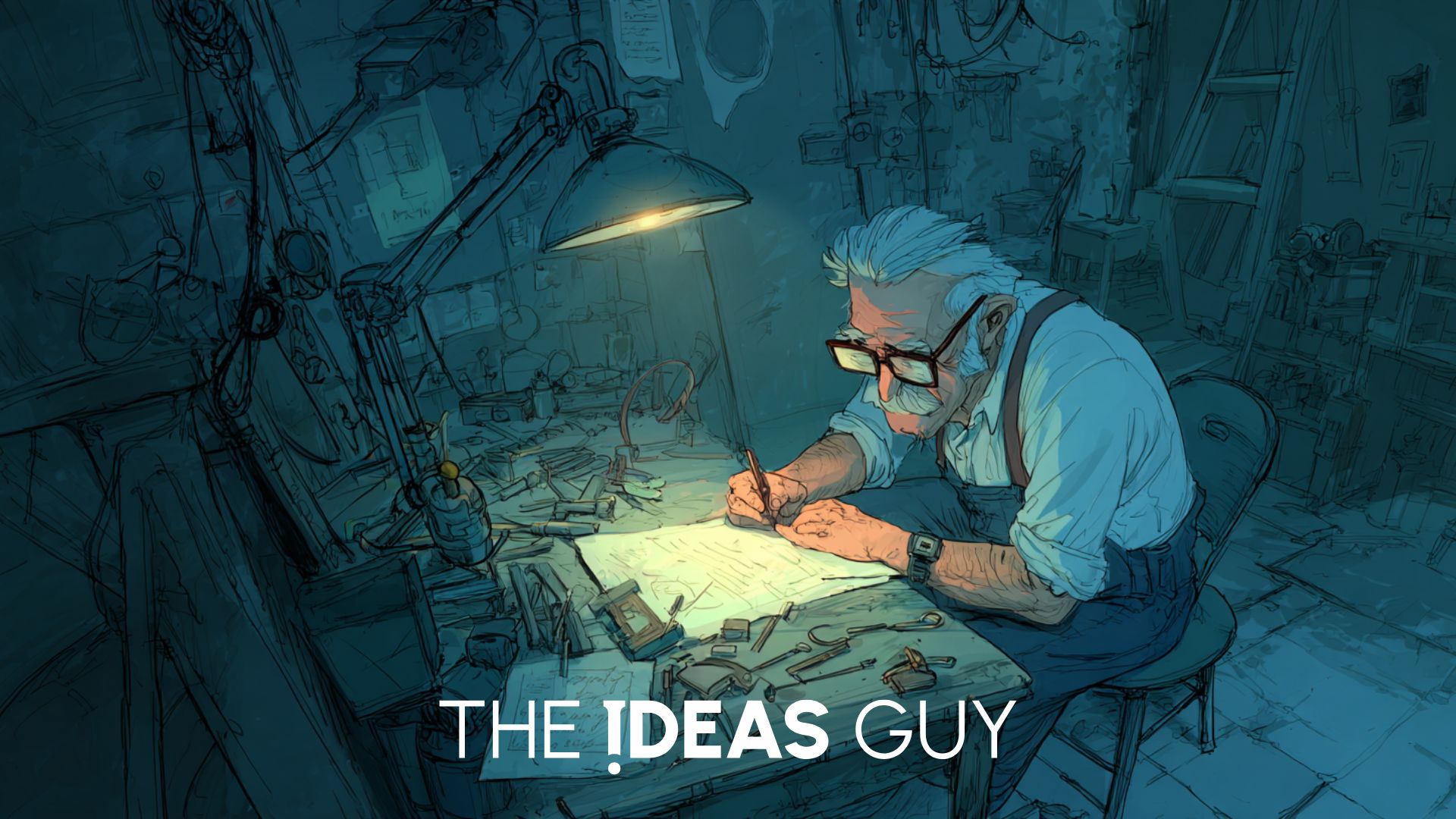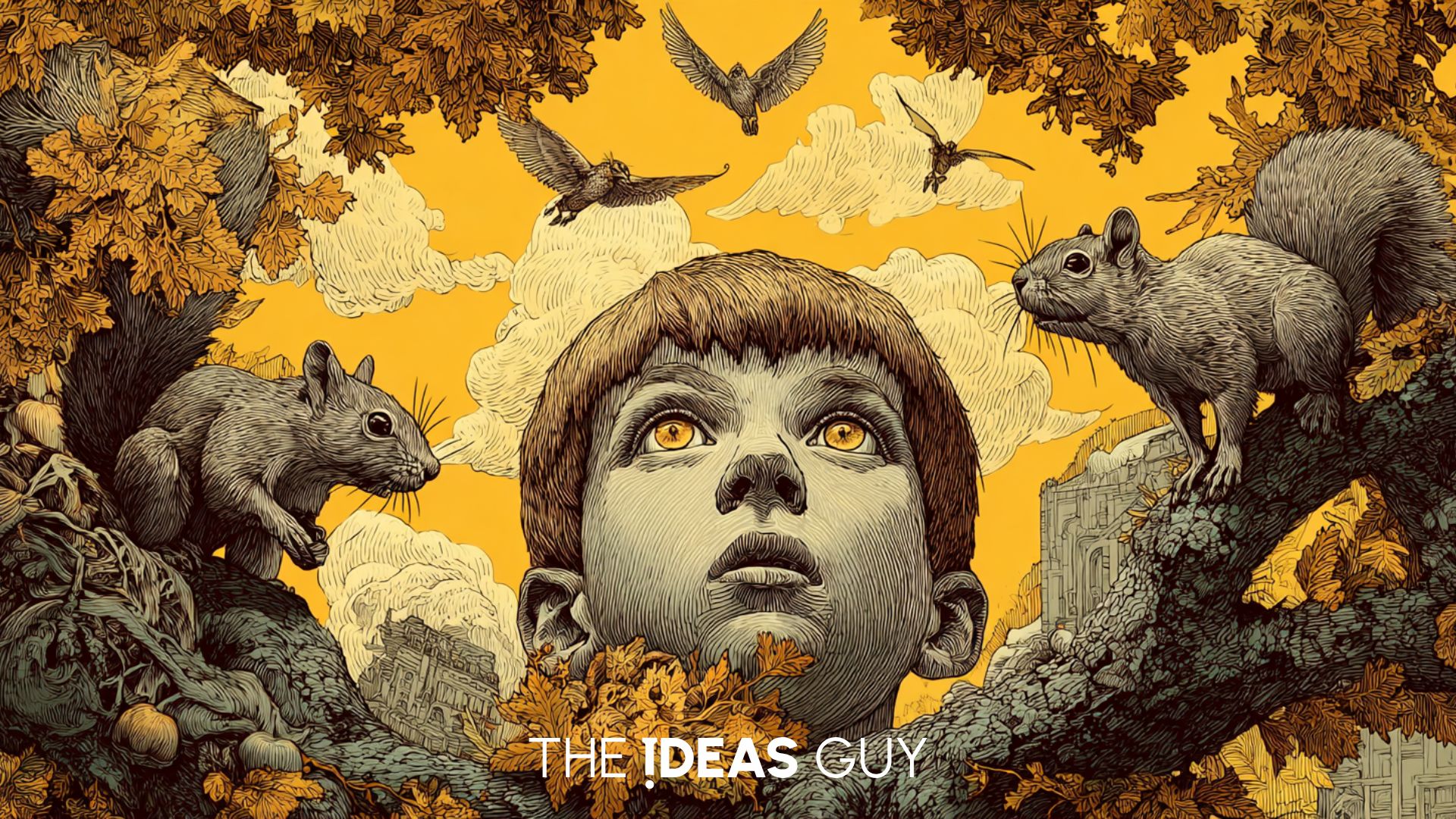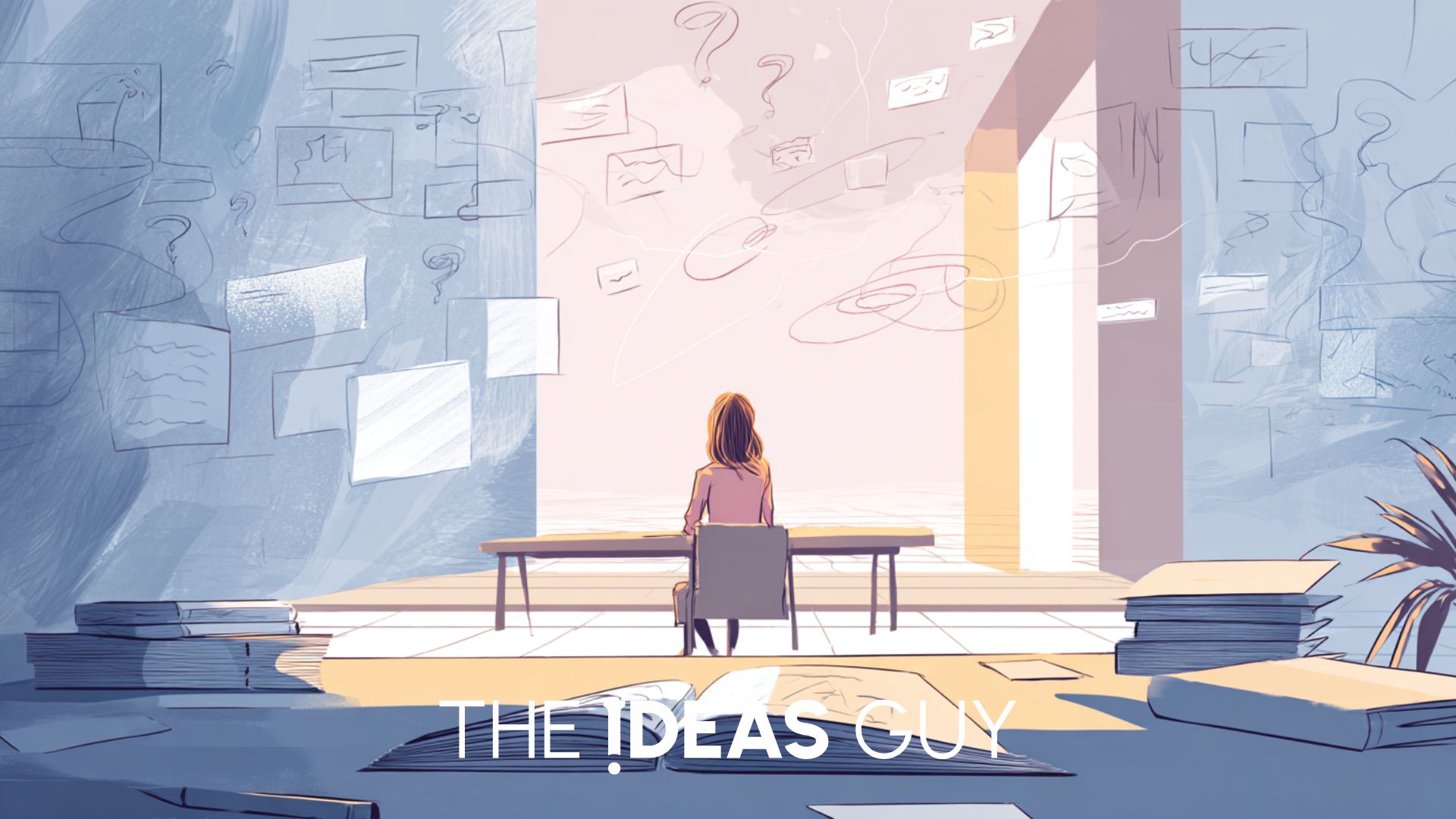⚠️ Trigger Warning: There will be some discussion on mental ill health, suicidal ideation and self-harm in this article. ⚠️
This feels raw to write. But also necessary. It feels like I’m oversharing and then worrying about oversharing (as per a typical ADHD response to self-regulation or lack thereof). I have seriously wrestled with whether to write this and publish it as a FRiDEAS edition, but feel that it shows my true, authentic self in a light that is more true and authentic than if I didn’t share it.
The Strange Power of ‘Should’
There's a peculiar weight to the word 'should'. Right now, I should be riding high. My first book is out in the world and people have been kind enough to buy it and champion me. BETT was a success and I got to spend it with one of my best pals in the world. My girls are thriving in their passions, happy and healthy. I'm receiving invitations to work in countries and organisations I've never visited before whilst being asked back to ones where I must’ve had some impact. The money is in the bank, the new StopPress business is booming, my LinkedIn is going off. By any objective measure, these are moments for celebration.
And yet.
The sadness creeps in, uninvited and unwelcome, like a shadow falling across sunlit moments. There's a particular guilt that comes with feeling down when everything is going well - a voice that whispers "you should be happy" with such conviction that the sadness itself becomes layered with shame. It's as if by not being purely joyful, I'm somehow failing at success itself.
'Should' is a tyrant of a word. It follows us around, clipboard in hand, checking off imaginary boxes of appropriate responses. You should be grateful. You should be excited. You should be able to handle this. You should be stronger. The weight of these 'shoulds' can be crushing, each one adding to the burden of expectations we carry.
What makes it harder is that these aren't just internal voices. Success comes with its own chorus of well-meaning observers. "You must be over the moon!" they say. "This must be the best time of your life!". And of course, parts of it are wonderful. That's what makes the sadness so confusing, so difficult to articulate. How do you explain that you can be genuinely thankful for these opportunities while simultaneously feeling overwhelmed by them? That you can be proud of your achievements while still battling the undertow of depression?
The truth is, emotions don't follow the logic of achievement. They don't read CVs or count accomplishments. They arrive on their own schedule, paying no heed to book launches or career milestones. Understanding this intellectually doesn't make it easier to accept emotionally, but it's a truth worth acknowledging.
Perhaps the most insidious power of 'should' is how it invalidates our authentic experience. It suggests there's a right way to feel, a correct emotional response to success. But feelings aren't right or wrong - they simply are. The sadness that shows up alongside success isn't a failure of gratitude or a sign of weakness. It's part of being human, of having a mind and heart complex enough to hold multiple truths at once.
Acknowledging sadness without prejudice doesn’t come naturally but I’m leaning into it today. However uncomfortable that feels.

Loneliness and Solitude - Two Very Different Beasts
There's a world of difference between choosing to be alone and feeling lonely in a crowded room. Last week, standing in the bustling halls of BETT, surrounded by thousands of educators and innovators, this distinction hit home hard. People were congratulating me on the book, asking for photos, seeking advice about their own journeys. I had people saying they loved my content and wanted me to work with them and others I’ve never met congratulating me on my successes. On paper, it was everything I'd worked towards. Yet in those moments between conversations, in the quiet corners of the ExCel centre and certainly back in my hotel, I felt a familiar hollow sensation creeping in.
Psychologist Robert Weiss's work perhaps helps make sense of this paradox. He found that we can experience loneliness even amid social connection when there's a gap between our outer and inner worlds. The same feeling surfaced during the book launch. While one part of me was genuinely excited to share these ideas with the world, another part felt strangely disconnected - as if watching someone else living out this success. In the midst of what should have been pure celebration, I found myself retreating to the bathroom for moments of quiet, not from introversion or overwhelm, but from a deeper sense of disconnection that's hard to name.

Solitude, by contrast, feels different. Those early morning writing sessions, when the house is quiet and I'm alone with my thoughts - that's when I often feel most connected to myself. The solitary weight sessions in the gym where ideas flow freely and perspective returns. These aren't lonely moments; they're deliberately chosen spaces for reflection and renewal. Research consistently shows that this kind of chosen solitude can be deeply restorative, enhancing our capacity for self-reflection and emotional regulation.
What's particularly challenging is how success can amplify this sense of isolation. When you're known as "The Ideas Guy," (and however much I run from being called that and push that onto others - TIG, you’re it!) there's an unspoken expectation to always be upbeat, innovative, inspiring. After my book launch talk, someone called me "inspirational" - all I could think about was how I'd spent the previous evening battling intrusive thoughts about not being good enough and, in all honesty, whether jumping in front of the train would solve these weird pangs of unworthiness. This disconnect between public perception and private experience is something many people grapple with, yet we rarely talk about it openly.
Social media adds another layer of complexity. Just yesterday, I shared photos from BETT, tweets about the book launch, LinkedIn updates about upcoming international work. The likes and comments poured in, but none of them touched that core feeling of disconnection. As researcher Sherry Turkle notes, we can be more connected than ever yet feeling more alone - a modern paradox that's particularly acute when navigating professional success.
“But if we don’t have experience with solitude—and this is often the case today—we start to equate loneliness and solitude. This reflects the impoverishment of our experience. If we don’t know the satisfactions of solitude, we only know the panic of loneliness.” Sherry Turkle
The truth is, you can be surrounded by support and still feel profoundly alone. During one of the busiest weeks of my professional life, I found myself sitting in my car after an event, not wanting to go home, not wanting to stay - just sitting there, feeling the weight of being simultaneously visible to many and truly seen by few. Understanding the difference between solitude and loneliness doesn't make the latter easier to bear, but it helps explain why one can feel nourishing while the other feels devastating.
Sherry Turkle also goes on to say:
“People are lonely. The network is seductive. But if we are always on, we may deny ourselves the rewards of solitude.” Sherry Turkle
There seems to be real truth in that. The rewards of solitude.
Strength in Numbers
Aristotle distinguished between three types of friendship: those based on utility, those based on pleasure, and those based on virtue. In times of success, the first two types often multiply - people who want something from you, people who enjoy your company when things are going well. But it's those friendships of virtue, built on genuine care and understanding, that sustain us through the darkness.
Last week, after a particularly challenging day at BETT, I messaged a close friend. Not with carefully curated updates about the book launch or professional victories, but with a simple truth: "I'm struggling". Their response wasn't advice or platitudes, but acknowledgment and presence. This is what Aristotle meant by true friendship - relationships where we can be fully known and accepted, successes and struggles alike.
The irony isn't lost on me that by writing this piece, by sharing these feelings of isolation, I'm reaching out to build connections. It feels vulnerable, perhaps even risky from a professional standpoint. But there's strength in naming our struggles. Each time someone has trusted me with their own battles with mental health, it's made my own journey feel less lonely. As Aristotle noted, genuine community isn't built on shared successes alone, but on shared humanity - including our doubts, fears, and darker moments.
“My best friend is the man who in wishing me well wishes it for my sake.” Aristotle
Support can come from unexpected places. During the book writing process, when imposter syndrome (I hate that phrase but it’s probably the best description I have right now!) was at its peak, it wasn't just close friends who helped. Sometimes it was a message from a LinkedIn connection who noticed something amiss in a post, or a fellow speaker who recognised the look of overwhelm backstage. These moments of genuine connection, however brief, serve as reminders that we're not alone in our struggles.
The key, I'm learning, is to cultivate spaces where both success and struggle can coexist. Where professional achievements don't have to wear a mask of perpetual happiness. Where saying "I'm not okay" doesn't diminish the value of what we've accomplished.
It’s also about crafting connections that allow you to offload and open up but without that person feeling the need to ‘fix’ or offer advice. I said last week that education seems to be too full of stuff and we need to find space. It’s true here too.
The contrast between different types of connection became stark during the book launch. There were hundreds of congratulatory messages, countless LinkedIn notifications, endless professional networking opportunities. But it was the 2am text from my friend asking "How are you really doing?" that actually helped. Or my wife noticing that my smile didn't quite reach my eyes during the launch photos. These are the people who see past the 'Ideas Guy' persona to the human underneath.

Honesty Really Is The Best Policy
There's again a certain irony in spending years advocating for authenticity in leadership while wrestling with when and how to be authentic about my own struggles. I've stood on stages across the world talking about psychological safety, about creating environments where people can bring their whole selves to work. Yet here I am, feeling that familiar knot in my stomach as I write about my own mental health challenges during what should be a career highlight.
The timing feels particularly poignant. My book, which touches on authenticity and innovation, sits on my desk while I contemplate how honest to be about the shadows that sometimes cloud these bright moments. At BETT, between signing copies and engaging in discussions about the future of education, I was managing my own internal dialogue about worthiness and belonging. The contrast is stark - externally discussing innovation and creativity while internally managing a familiar darkness.
This isn't just about personal catharsis though. Every time I've taken the risk to be honest about my struggles - whether with ADHD, depression, or the complexities of neurodivergent leadership - someone has reached out to say "me too". During a recent keynote, I briefly mentioned my past challenges with mental health. Afterwards, three different educators approached me, each sharing their own experiences of maintaining a professional facade while battling internal demons. These moments of connection are worth any professional risk that comes with vulnerability.
There's also something powerful about acknowledging that success and struggle aren't mutually exclusive. You can be launching a book, speaking internationally, and doing work you love while still experiencing periods of profound sadness. Both realities can coexist. Denying either diminishes the whole truth of human experience.
Recently, a young teacher asked me how I maintain such consistent positivity. I had to laugh - not at them, but at the misconception. Instead of maintaining the expected professional polish, I told them about sitting in my car after events, gathering the energy to face the world again. About the times when my wife has had to remind me that my brain is lying to me. Their relief at hearing this was palpable. "I thought it was just me", they said.
Tell-Tale Signs & Red Flags
One of the most telling signs that I'm struggling isn't the obvious markers like tearfulness or withdrawal. It's the subtle shift in my engagement with the world. Despite having a stack of fascinating books by my bed and a queue of thought-provoking podcasts on my phone - things that usually fuel my curiosity and creativity - I find myself unable to engage with them. Instead, I scroll mindlessly through social media, consuming content without processing it, or binge-watch entire series without really seeing them. The same goes for food - I reach for whatever will provide quick comfort.
These patterns are my personal red flags. When the things that normally light me up - learning, engaging with new ideas, meaningful conversations - start feeling like insurmountable tasks, it's a signal that something deeper is amiss. It's particularly challenging because these are the very things that could help lift me out of the fog, yet they become the hardest to access.

The professional oxymoron isn't lost on me either. Here I am, "The Ideas Guy," temporarily losing my appetite for new ideas. Speaking about innovation while struggling to innovate my way out of a low period. Writing about creativity while feeling creatively drained. But perhaps this too is part of the honest narrative we need to share - that even passion for our life's work can ebb and flow.
It's about creating space for others to acknowledge their own patterns, their own red flags. It's about challenging the narrative that professional success requires constant enthusiasm, unflagging energy, and perpetual creativity. Sometimes, the most authentic leadership we can offer is the admission that we too experience these human moments of disconnect and difficulty.
What I'm learning is that honesty isn't just the best policy - it's the only sustainable one. Maintaining a facade takes energy we could better spend on actual recovery and growth. Every time I've chosen authenticity over appearance, it's created ripples of permission for others to do the same.
Key Takeaways
There's a peculiar challenge in writing about sadness while experiencing it. Yet perhaps that's exactly when we should write about it - when it's raw and real, not neatly packaged in retrospective wisdom. As I sit here, celebrating career milestones while managing mental health shadows, several truths emerge:
1. The 'Shoulds' Don't Help
Success doesn't inoculate us against sadness, and feeling down during career highs isn't a failure of gratitude. By releasing ourselves from the tyranny of 'should', we create space for more honest conversations about mental health at all stages of our journey.
2. Recognise Your Red Flags
When podcasts go unplayed, books remain unopened, and mindless scrolling replaces meaningful engagement, these aren't just habits - for me they're signals. Understanding our personal patterns of disconnection is crucial for early intervention.
3. Success and Struggle Can Coexist
Launching a book, speaking internationally, and battling depression aren't mutually exclusive experiences. We can hold both realities - celebrating achievements while acknowledging challenges. This isn't contradiction; it's human complexity.
4. True Connection Requires Vulnerability
As Aristotle understood, genuine relationships - whether personal or professional - are built on authentic sharing, not just shared successes. Every time we risk being honest about our struggles, we create permission for others to do the same (sounds a bit Marianne Williamson too!).
5. Keep Talking
Mental health isn't a destination but a journey. Sometimes that journey takes unexpected turns, even (or especially) during moments of external success. The more we talk about this reality, the more we challenge the notion that professional achievement requires perpetual happiness.
For now, I'll continue launching books while managing low days, delivering keynotes while acknowledging anxiety, and sharing ideas while sometimes struggling to engage with them myself. Because maybe that's what authentic leadership really looks like - not the absence of struggle, but the courage to acknowledge it.
Further Reading
Discover more interesting articles here.
.png)



